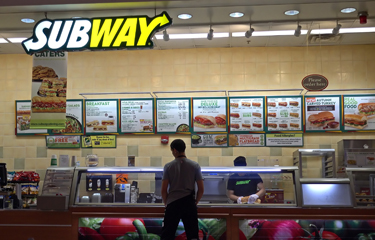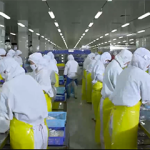Subway "fake tuna" lawsuit shifts focus to sustainability

A class-action lawsuit that questioned whether the tuna served at U.S. sandwich chain Subway is actually tuna is now focusing on the veracity of the restaurant chain’s sustainability claims.
In January 2021, plaintiffs Karen Dhanowa and Nilima Amin said in a complaint filed in the U.S. District Court for the Northern District of California that the “tuna in Subway’s sandwiches and wraps is a “mixture of various concoctions that do not constitute tuna, yet have been blended together by [Subway] to imitate the appearance of tuna.”
The plaintiffs did not say which ingredients Subway uses in place of tuna.
Now, in an amended complaint filed earlier this month, the plaintiffs are targeting Subway’s marketing and advertising claims that its tuna is 100 percent sustainably-caught skipjack and yellowfin tuna, and that its tuna does not contain “tuna species that come from anything less than healthy stocks, for example albacore and tongol.”
The plaintiffs are also still contending that Subway’s claims that it utilizes 100 percent tuna are false.
The Subway class action suit is just the latest in a rash of sustainability-related lawsuits against seafood suppliers, retailers, and restaurants.
A class-action complaint brought against Red Lobster earlier this month alleges that the massive restaurant chain’s farmed shrimp and Maine lobster are not sustainably sourced, as the company claims they are. Filed by a consumer in U.S. District Court in California, the complaint claims that Red Lobster’s shrimp is sourced from “industrial shrimp farms that do not employ the highest environmental or animal welfare standards” and its Maine lobster is sourced from suppliers that use environmentally destructive practices that threaten endangered populations of North American right whales.
Earlier this month, in a complaint filed in the U.S. Superior Court in the District of Columbia, ALDI was also accused of false advertising and marketing, with the advocacy group GMO/Toxin Free USA alleging ALDI’s claim that its salmon is sustainably sourced is not credible.
In addition, Mowi agreed to settle a similar lawsuit for USD 1.3 million (EUR 1.1 million) earlier this year. The complaint alleged that the sustainability claims on its Ducktrap River of Maine smoked salmon were false.
In Subway’s case, “defendants know and/or should have known about vulnerabilities in their tuna supply chain that result in the sale of product throughout California giving rise to deceptive advertising and misbranding of the products,” the amended complaint stated.
“Defendants do not take sufficient measures to control or prevent the known risks of adulteration. On the contrary, they actively perpetuate actions and steps that encourage mixing non-tuna ingredients into the products,” the complaint said.
The “tuna” that is used in Subway’s California-based locations comes to each restaurant in a sealed vacuum bag that has been prepackaged outside the United States, the plaintiffs said. As a result, the restaurant chain lacks “a reliable and standardized protocol to ensure that the contents of these sealed vacuum bags are actually tuna.”
Consumers paid a premium for Subway’s tuna sandwiches and wraps, because they were advertised as 100 percent sustainably-caught skipjack and yellowfin tuna, the complaint stated.
“In fact, neither plaintiffs nor any of the member of the putative class received the food product they reasonably thought they were buying,” it said.
The complaint does not address specifics on why Subway’s sustainability claims are not truthful.
Attorneys for the plaintiffs and Subway did not respond to SeafoodSource’s requests for comment.
Photo courtesy of QualityHD/Shutterstock






Share